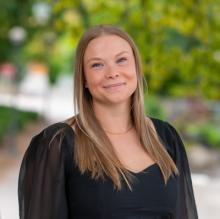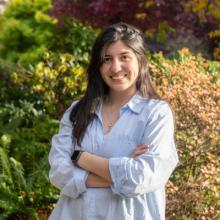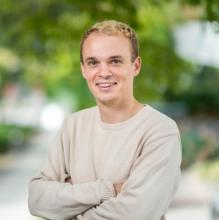Informed by research on self-regulated learning and emotion regulation, my research aims to work collaboratively with teachers and students to better understand ways to support students as they take on challenges in schools – taking into consideration its complexities, dynamic nature, and social processes.
Research Description
Challenges are important for learning. Negative emotions, such as frustration, can draw students' attention away from learning and often overwhelm them. How students are influenced by challenges has implications for their functioning in the classroom and beyond. Emerging research has identified essential features of classrooms and adaptive motivational beliefs of students that can help students overcome challenges at school. If thoughtfully introduced, classrooms can serve as safe and supportive environments where students can learn to cope and practice coping with challenges. Informed by research on self-regulated learning and emotion regulation, my research aims to work collaboratively with teachers and families to better understand ways to support students as they take on challenges in schools – taking into consideration its complexities, dynamic nature, and social processes.
What does being a Public Scholar mean to you?
Public scholars are those who take personal and social risks in the pursuit of knowledge. They engage in continual process of self-exploration, skill development, and higher learning. They endeavour to share and use their acquired knowledge and skills to empower and support others. And, they work with the community to help bring insight into complex social challenges in hopes of making a meaningful impact on the lives of people in the community.
In what ways do you think the PhD experience can be re-imagined with the Public Scholars Initiative?
A re-imagined PhD experience is one that provides an opportunity to take an in-depth reflection and exploration of not only personally or academically meaningful questions but also socially meaningful questions and problems. It reminds students to situate their learning and research in the context of how it can impact the greater community around them. And, it prepares students to take on the novel, complex, and unknown challenges that lay ahead.
How do you envision connecting your PhD work with broader career possibilities?
I am fortunate to have had the opportunity to be in a program that encourages a scientist-practitioner model: School Psychology. We are afforded opportunities to engage in practical training experiences in schools and the community working with children and youth. We are also guided in exploring theoretical issues through implementing rigorous research methodologies. The thread that runs through my academic and professional career is one that aims to develop the necessary skills and experiences to best support children and youth that struggle in schools.
How does your research engage with the larger community and social partners?
The proposed research project will align with planned mental health initiatives in a local school district. My interest is to learn what teachers are already doing to support students, find out where gaps exist, and provide workshops and consultation around those areas of interest. This collaborative consultation work builds off training that I have received in my doctoral training in school psychology. I aim to work with schools to better understand what their interests, goals, and needs are. Rigorous research methodologies will be implemented and evaluated to strengthen results, develop novel tools and interventions, and demonstrate the value of doctoral-level thinking.
Why did you decide to pursue a graduate degree?
Prior to graduate school, I was a secondary school science teacher in rural Yukon. I found that I continued to have many unanswered questions about how to best support my students, especially those who struggled with strong emotions and their mental health. I felt limited in my capacity as a teacher. Enrolling in graduate school meant an opportunity to take the necessary time to immerse myself in what is already known and explore how I could best support students more broadly than my single classroom.
Why did you choose to come to British Columbia and study at UBC?
I am happy to report that after completing degrees in Genetics, Teacher Education, and School Psychology at UBC, I continue to learn from and be inspired by the innovative programs, initiatives, and opportunities that the university offers. For instance, currently, the university is spearheading mental health initiatives across campus that aims to support students in all aspects of their academic lives. Having lived all across Canada, I would also be remised not to mention the natural beauty of the campus and surrounding area.
Public scholars are those who take personal and social risks in the pursuit of knowledge. They engage in continual process of self-exploration, skill development, and higher learning. They endeavour to share and use their acquired knowledge and skills to empower and support others.




